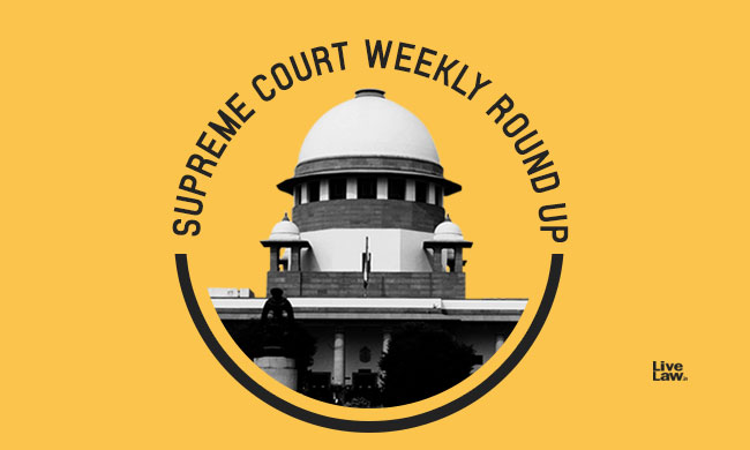1. SARFEASI Act Applicable To Cooperative Banks : SC [Pandurang Ganpati Chaugule and others V. Vishwasrao Patil Murgud Sahakari Bank Limited]The Supreme Court held that the Securitization and Reconstruction of Financial Assets and Enforcement of Security (SARFREZI) Act, 2002 is applicable to Cooperative banks. A Constitution Bench comprising Justices Arun Mishra, Indira Banerjee, Vineet Saran,...

